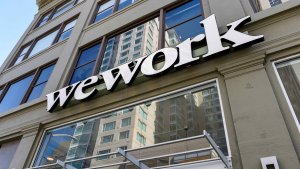Beyond Four Walls: How SMEs Can Maximise The Flexible Workspace Market
The flexible office space market is exploding, how can your business share in the benefits?

Flexible workspace is set to double in Europe, the Middle East and Africa in the next 3 years. Once thought of for freelancers and one-man-bands, it is now disrupting the way most sectors work; with even established multi-national businesses choosing flexspace for their headquarters.
For growing businesses in particular, its adaptability, cost efficiency and innovation make it the perfect companion.
But, with such choice can come confusion. There are a plethora of labels, titles and pricing models for SMEs to get to grips with. To do so, and to maximise the benefits, they need to have a clear understanding of what they are looking for.
But, as ever, one size doesn’t fit all. Whilst beer on tap may appeal to some, discreet working, prime addresses and neighbours for networking will attract others.
Organic flexibility
SMEs by nature are unpredictable – a growing business has no idea where it will be in six months, let alone six years – and its office should support, rather than restrict, as it both grows and contracts.
In the first instance, consider the space itself: can desks be added or removed easily? Is there scope to add walls or create private spaces? Also, an SME’s growth may be so speedy that it needs a bigger square foot office all together.
By working with a provider that has a cluster of buildings in one area, when the need arises to move building as you upscale, you only have to go down the road; minimising disruption to employees and maintaining the benefits of the area’s amenities and commuter connections.
What’s more, start-ups can sometimes be overly ambitious, and things don’t always go to plan, and so businesses must have the scope to reduce headcount. Both flexible spaces and flexible leases are crucial for an SME’s organic growth.
First impressions
From the outset, it is crucial that your space projects the right image to clients, employees and competitors alike, and there are many ways to ensure that your first impression packs a punch. Your address can bolster your image, so consider the area itself.
In London, for instance, Mayfair and The City have different images and clientele – do you need to be close to the big banks and law firms, or would a traditional building in Pall Mall or St James’s suit better?
Your environment can also be a key weapon in the ‘war for talent’. SMEs are up against long-standing industry players and renowned graduate schemes when attracting and retaining the best employees.
Offering recruits an innovative and flexible work environment can therefore prove crucial; particularly on-site facilities like quality break-out areas, showers and meetings rooms overlooking the London skyline.
SMEs can rarely afford these facilities independently and so a space that offers all of it for them can be a successful tool for both boosting its image, despite its youth, whilst also reducing costs. Make people want to work for you, and they will.
Real estate should support lifestyles
Ask yourself the question: does every member of your team need a permanent desk if many of them spend time out on the road? An effective solution for growing businesses is having a smaller permanent office alongside a club membership, which offers multi-site access to lounges and hot-desks across the city.
This not only reduces costs but also supports each individual’s lifestyle. Employees therefore don’t have to waste unnecessary hours commuting if they can use a space best suited to their schedule on a specific day.
They can then reclaim these hours to spend time with family, play sport or see an old friend. The links between wellness and productivity are undisputed, and the role of real estate shouldn’t be forgotten in this process.
Making the move
Finally, moving house can be stressful, but imagine moving a team of employees across a busy city. To help make the process as seamless as possible, make sure your new office has practical IT support before the big move.
This will save precious and billable hours and ensure that, come 9am on your first day in the new office, your business can kick start the next chapter of its journey without pausing.
Can virtual help?
Is a Mayfair address important to you but you also want to work from your country retreat? You can.
Virtual offices provide international, regional and flexible businesses with a London address and capabilities (i.e. phone number and address), but without the need for any employees to actually be there.
This is a great solution for growing businesses and remote workers who can maximise the benefits of flexibility and a central address.
With a booming flexible workspace market, the choice on offer for SMEs will only increase and there are plenty of benefits there for the taking. The key to unlocking this is knowing your needs, and thinking beyond an office’s four walls when selecting your space.
Beth Hampson, is Commercial Director of London Executive Offices (LEO).
Thanks for signing up to Minutehack alerts.
Brilliant editorials heading your way soon.
Okay, Thanks!

